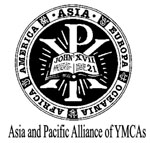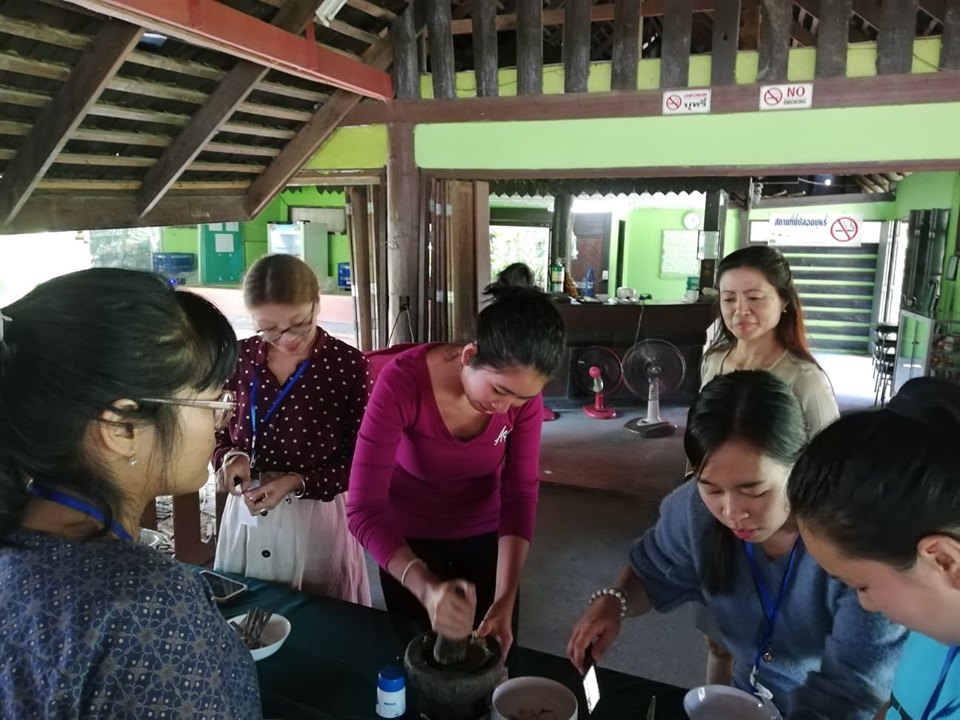 |
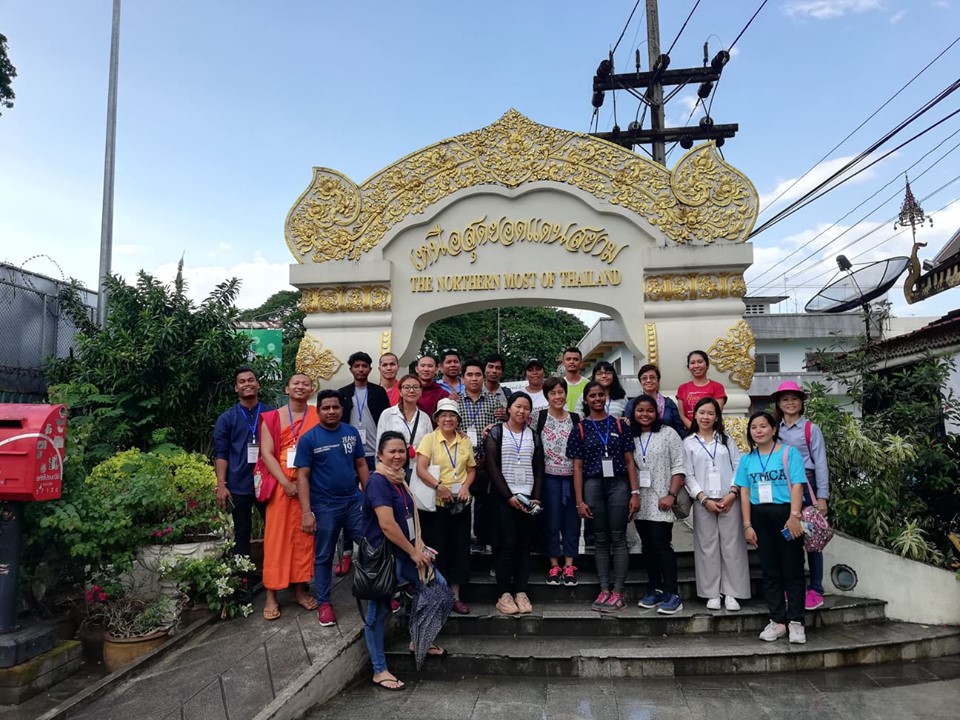 |
| ↑ Participants making balachaung (tamarind with shrimp paste, garlic and chili) in Chiangrai |
↑ At the Thai-Myanmar border |
The third section, Making Connection and Identifying situations usually not regarded as Peace Issues, challenges participants to examine issues such as the political economy, neoliberalism, alternative tourism, ecological crisis, human rights, and women’s rights, and grounding gender justice work on feminist theory and ethics. The facilitators for this section are Dr. Tirmizy Abdullah (human rights), Chan Beng Seng (neoliberal economy, ecological crisis, and tourism), Retha Andoea (rights of women and children), and the ICF Coordinator (feminist theory and ethics).
The fourth section on Skills towards Peacebuilding, includes trauma healing, mediation, conciliation, writing news articles, and peace education. The facilitators are Baidido Saganding, the ICF Program Officer (Trauma), Josefina Villanueva (Mediation, Conciliation and Peace Education), and the ICF Coordinator (news writing and designing workable plans). The last section on the Preparation for Re-entry and Application of Learnings requires the participants to design doable plans that they can implement in their localities. Community visits and immersion in relation to the abovementioned subjects, both in Chiangmai and Chiangrai were coordinated by Phanomwan Yoodee. Check-up quizzes were also done at the end of each weekend.
Mr. Christian Fischer, Program Officer of Bread for the World, Germany met with the participants of the SoP on 14th October. He shared with them the program activities and policies of BftW. The participants also shared with him their experiences at the SoP and about their aspirations as an alumni of SoP.
We hope and pray that after the conclusion of the School of Peace, the participants will be return home with a renewed vision and commitment towards promoting peace and justice in their own communities. They will also be closely working with the ICF for further augmenting the work of ICF in the area of peace and justice.
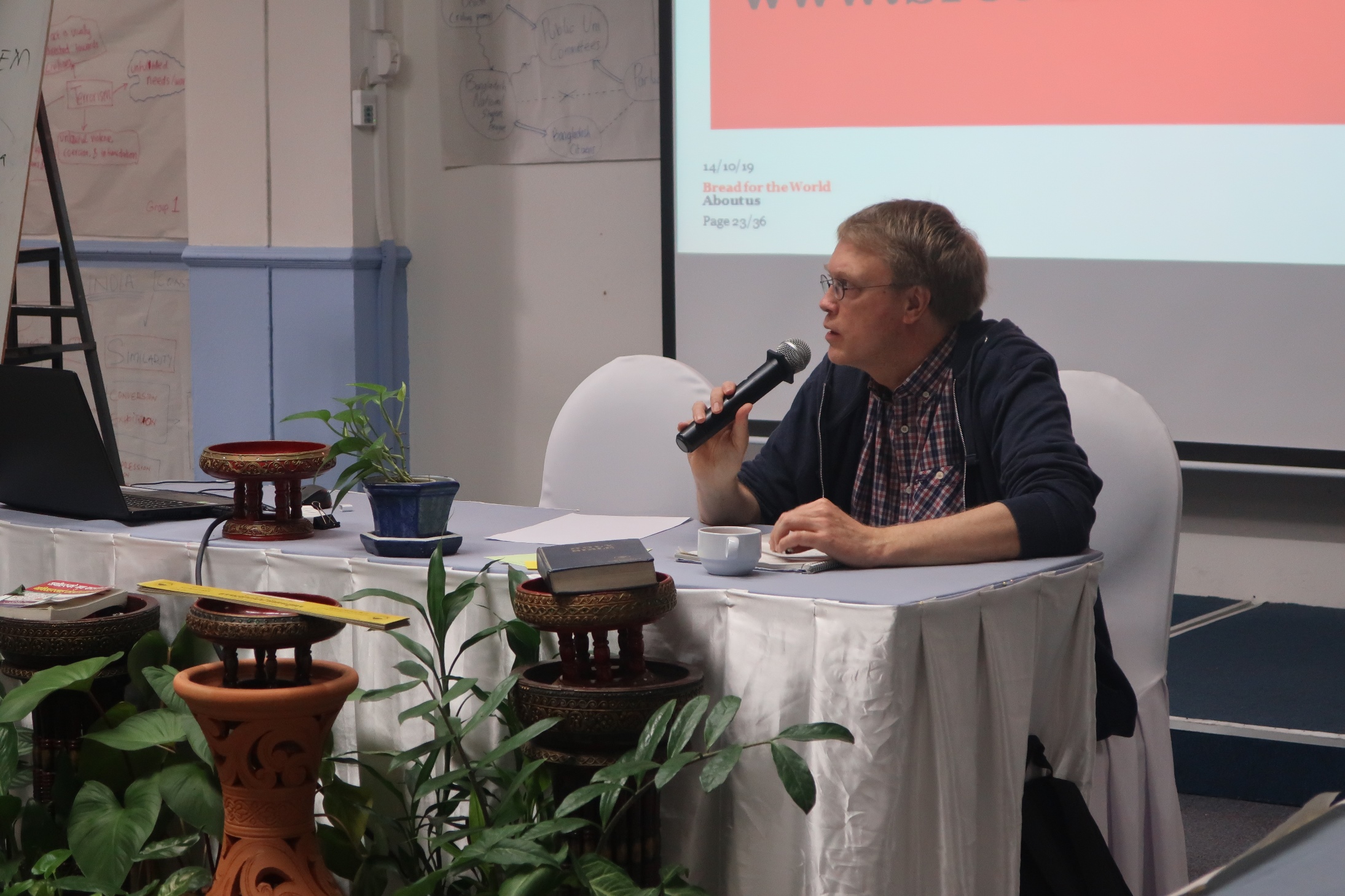
|
| ↑ Chris Fischer at Sop 2019 |
~ Muriel Orevillo-Montenegro
Coordinator, Interfaith Cooperation Forum
GATN Networking Conference on Response and Sustainable Tourism
The GATN Networking Conference on Responsible and Sustainable Tourism was held at the YMCA Chiangmai, Thailand from 30 – 31 October 2019. About thirty delegates from Payap University - Thailand, Maejo University - Thailand, Souphanouvong University - Laos, organizations like Foundation of Child Understanding - Thailand, Good Travel - Korea, Y – Development - Thailand, Joint Advocacy Initiatives - Palestine, United Board for Higher Education in Asia - Hong Kong, and YMCAs from Cambodia, Malaysia, Singapore, Indonesia, Thailand and Hong Kong, who all are working to promote responsible and sustainable tourism in various forms are participating at this conference with a view to share current trends and issues related to tourism and also find out ways and means to collaborate with each other for the promotion of Responsible and Sustainable Tourism.
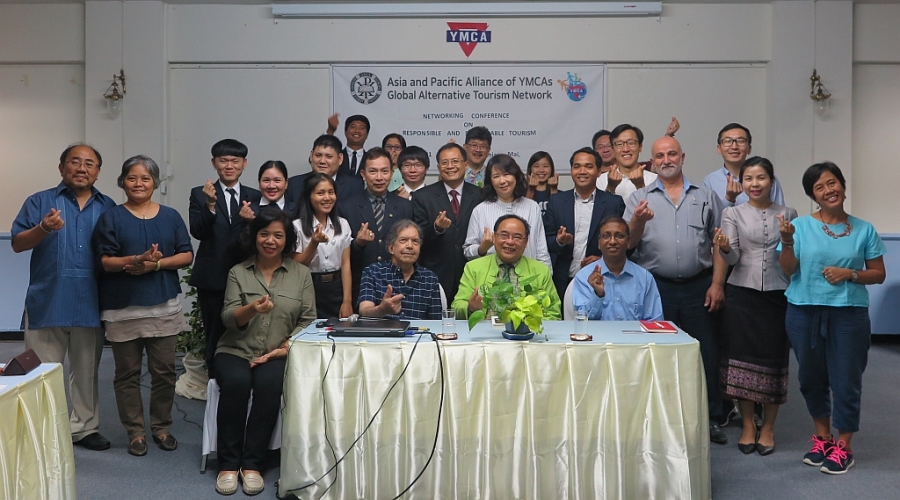 |
| ↑ Little hearts for responsible and sustainable tourism |
This is the first attempt for GATN to network with universities in the Mekong sub-region to collaborate on promoting responsible and sustainable tourism as a response to the current trends of consumerist mass tourism. Participants of the Conference shared and spoke on various challenges and issues related to the tourism industry.
Mr. Caesar D’Mello, our keynote speaker from Australia spoke on “SDGs, Sustainable Tourism, Climate Change: On a Planet Livable for All”. He spoke on SDGs as a pathway to a just and better world, highlighting SDGs 8, 12, 13 and 14 as important and significant goals in the development of equitable and sustainable tourism.
In response to the consumerist nature of mass tourism of today, Dr. Weerapong Thongma from Maejo University and Dr. Tidti Tidtichumrernporn from Payap University in Chiangmai shared their innovative ideas on how local communities can benefit from sustainable tourism through the development of Agro-Community Based Tourism and Eco-Friendly Tourism. Na HyoWoo, CEO of Good Travel from Korea and Phanomwan Yoodee, Associate General Secretary of Chiangmai YMCA shared from their experiences that local communities can further benefit from tourism if it is run as a Social Enterprise and promoting Fair Trade.
Other issues and challenges related to tourism raised by our panel of speakers include the dangers of ‘Over-Tourism’ by Dr. Vilayphone Somsamone from Souphanouvong University in Luang Prabang and Ben Svasti from FOCUS in Chiangmai warned about the dark side of tourism where vulnerable women and children are exploited in tourism. Nidal Abuzuluf from East Jerusalem YMCA shared how peace tourism through the olive tree campaign could also be an educational encounter as well as an expression of solidarity for the Palestinian people. In her presentation on Alternative Pilgrimage, Dr. Muriel Montenegro, Coordinator of the Interfaith Cooperation on Peace, warned about the commercialisation of pilgrimage today and the need to reclaim the sacred function and purpose of pilgrimage. In this light it is also important for us to look for non-traditional forms of pilgrimage.
Three young staff from the Global Alternative Tourism Network shared case studies on how responsible and sustainable tourism is being implemented by their respective YMCAs. Hem Thel from Cambodia spoke on GATN program and activities from hosting YMCA's perspective and Joyce Yu from YMCA of Singapore spoke on the International Service Program from sending YMCA’s perspective. Franky Fong from the Chinese YMCA of Hong Kong shared about their activities of Uni-Y and Youth empowerment. The conference concluded with a presentation by Dr. Hope Antone on the basic principles of International Service Learning that are being implemented by universities. We found many similarities between Service Learning and the activities being promoted by GATN and she offered some suggestions on possibilities for collaborations with the universities.
Although the meeting lasted only for two days, many critical issues were discussed regarding tourism. This conference allowed us to discuss not only issues and challenges related to Responsible and Sustainable Tourism but also an opportunity to explore areas of collaboration with partners in the universities and other NGO. We also understood the importance of educating the younger generation about social responsibilities and social engagement through community services. GATN is committed to advocating responsible and sustainable travel. There is a long journey ahead of us but it is our mission and goal to brand traveling the YMCA way.
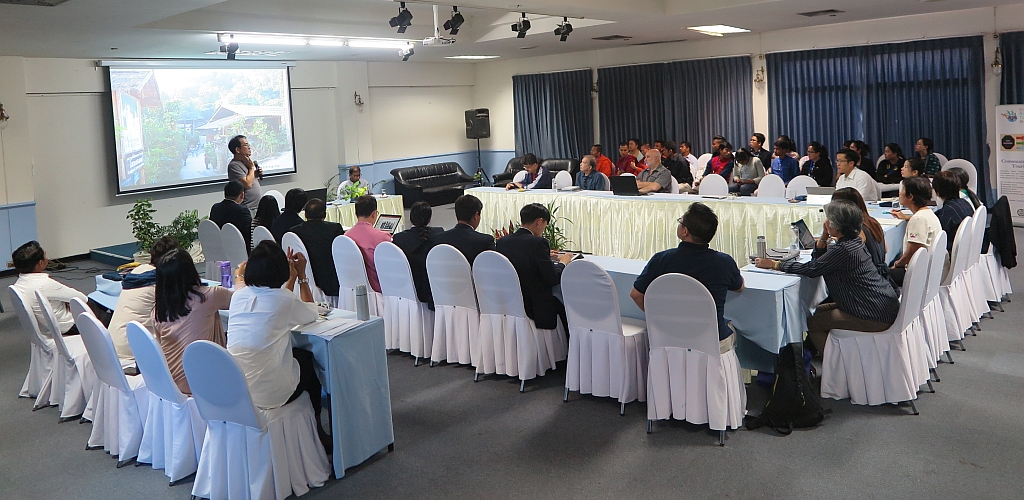 |
| ↑ NA Hyo Woo sharing on Fair Tourism and Social Solidarity Economy |
~Chan Beng Seng
Coordinator, Global Alternative Tourism Network
Global Summit on Refugees, Migration and Immigration
The World Alliance of YMCAs had organized the first Global Summit on, Refugees, Migration and Immigration, that took place in Baltimore, Maryland, USA from 30 September – 2 October at the Reginald F. Lewis Museum at Baltimore. Thirty-one YMCA leaders from across the world participated at the summit, representing various YMCAs who are actively involved in refugee, migration and immigration issues.
The Global Summit on Migration and Immigration aimed to assess our current contribution to the refugee and migrant crisis, to create a platform to encourage dialogue and learning best practices, a shared vision and strategic framework for enhanced coordination, communication, advocacy and innovation and establish a monitoring system to ensure our programs.
The summit was organized as a follow up process to the Resolution on Refugees, Immigration and Migration, adopted at the World Council Meetings at 2018.
Resource persons at the Summit were Mr. Luca Dall’Oglio - Chief of Mission, International Organization for Migration, Ms. Vanja Pantic-Oflazaglu - International Program Manager, Welcoming International, Ms. Joan Rosenhauer, Executive Director, Jesuit Refugee Services, USA and Mr. Andrew Selee, President, Migration Policy Institute. The participants also shared the work they have been doing in their respective YMCAs to address refugees and immigration issues and the challenges they are facing. Mr. Carlos Sanvee, Secretary General of the World Alliance of YMCAs and Ms. Lisa Kalivatsi from the World Alliance along with Mike Van Haelewyn from the International Group of Y-USA coordinated the program.
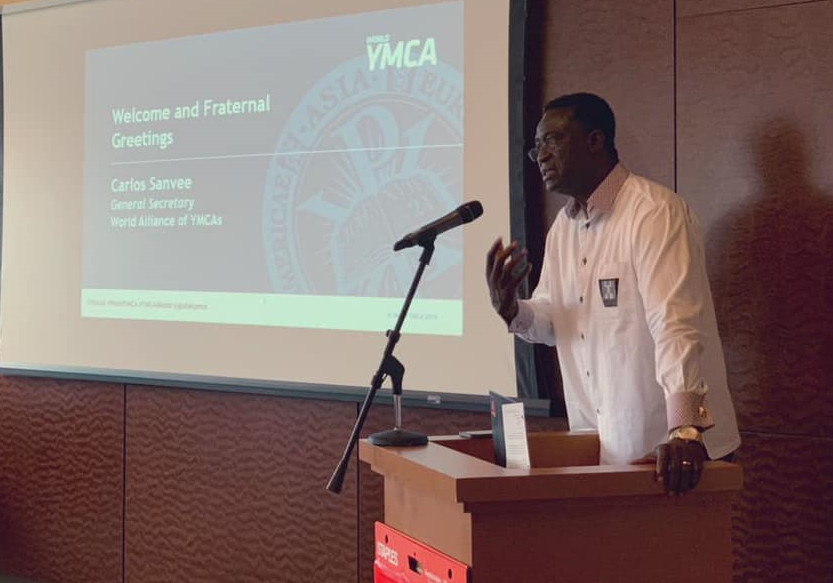 |
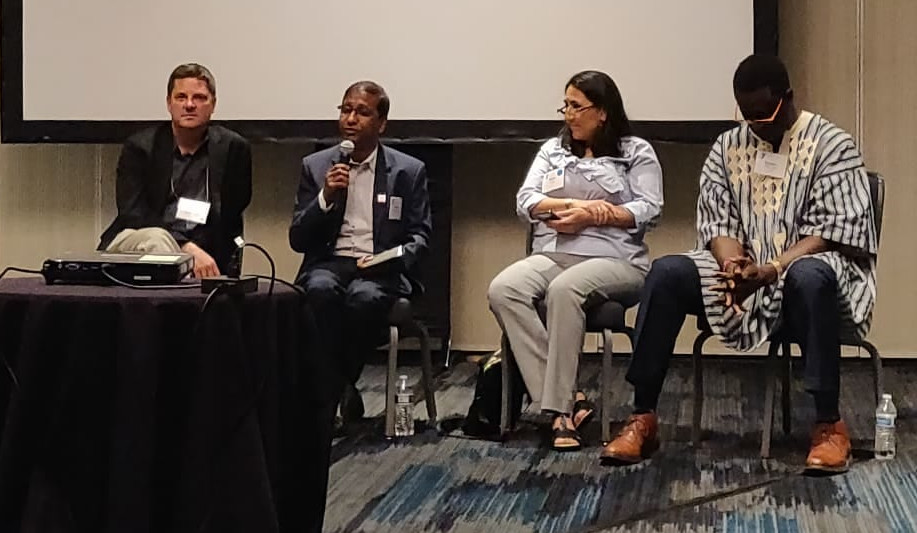 |
↑ Mr. Carlos Sanvee, Secretary General of
WA inaugurates the Summit
|
↑ Mr. Duncan Chowhdury, APAY Executive Secretary
during panel discussions
|
The delegates were in an opinion to create a Community of Impact (COI), a group of the WA focused on Immigration, Migration and Refugee Work. They recommended to strengthen the capacity of the YMCAs in this respect. The need was felt for us to get involved in advocacy program for the IMR, in order to address the root causes of the displacements and to form public opinion and policies in favor of the displaced communities.
There was a felt need for data collection, including mapping of the existing YMCA programs on IMR. Regional networks for the YMCAs could be formed for sharing of better practices and to establish a learning and sharing space. The delegates further recommended that the YMCAs should be involved in bridge building between the new immigrant communities by the receiving community populations. This would allow the YMCAs to play a vital role in connecting diverse communities and building greater community cohesion.
The YMCAs needs to work towards establishing a common vision with diverse approaches to address the IMR issues with especial emphasis on youths focusing on their safety, security, mental health and opportunity grounded in basic human rights.
Duncan Chowdhury, Executive Secretary representing APAY and Ms. Suet Tung Ng (Mandy) from the YMCA of Hong Kong were the two participants from Asia and Pacific at the Summit.
~ Duncan Chowdhury
Executive Secretary
5th Leaders Quadrennial Roundtable
The 5th Leaders’ Quadrennial Roundtable to be held in Taipei, Taiwan on 11-25 December 2019 will be participated by key leaders from our region. This collective planning is a platform to share, deliberate and determine together the directional thrusts for the mission of the YMCAs in Asia and Pacific through exploration of broad and common program priorities and strategies. This process will assist the Executive Staff and Standing Committees to work on detailed quadrennial program plan for presentation at the Executive Meetings in March 2020.
This roundtable will be specifically participated by APAY Board Members, Presidents and General Secretaries of National Movements, selected youth members, other key leaders as deemed appropriate to the purpose of the meeting and APAY program staff. The roundtable will consist of keynote presentation on social realities and paradigm dialogue, QPP evaluation, SDGs, lessons and doing QPP better, QPP priorities and strategies. Exposure will be arranged to learn about programs by the host YMCA. To maximize the participation in the planning process, the methodology will be in the most part participatory, in working groups and plenary sessions for synthesis and consolidation.
The expected outcome will include a directional thrust that encompasses the Mandate from the 20th General Assembly and 4th Youth Assembly that will likewise serve as motivation for responses and actions based on common vision. In addition, a draft Quadrennial Program Plan 2019-2022 for the Alliance that has taken into consideration the issues/concerns related to particular contexts (local/national/regional); practical implementation strategies and resource mobilization.
Thus, the roundtable serves as a platform to translate the adopted Assembly Statement and the various discussions engaged in during the gathering. As expressed in the statement, the participants reconfirmed their conviction to continue their efforts in addressing the regional/global issues through the YMCA actions at local, national and regional level particularly on the issue of environment protection and peace restoration. Further it states that the YMCAs were also urged to focus less on money, and more on a common mission, larger than the YMCA itself by looking into Jesus’ works.
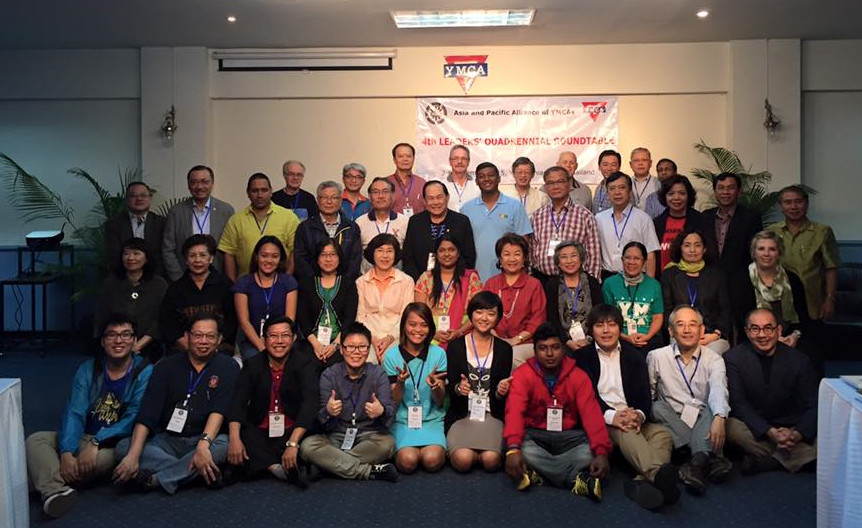 |
| ↑ 4th LQR Group photo at Chiangmai in 2015. |
~ Maria Cristina Miranda
Executive Secretary
New President of Mongolia YMCA
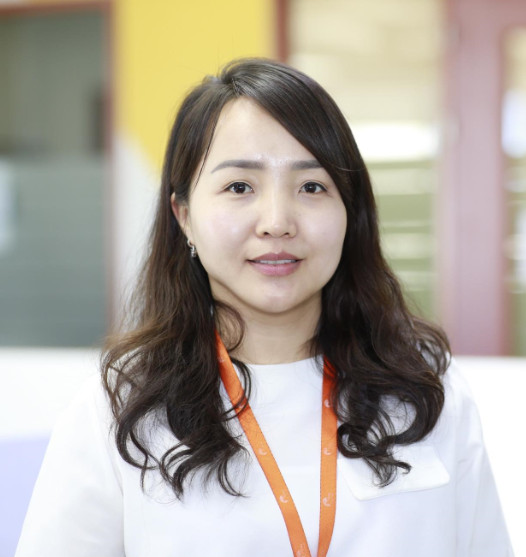
Ms. Bolortuya Dondovsambuu has been elected as the President of Mongolia YMCA from 1st October 2019. Earlier she was nominated to the board of Mongolia YMCA in 2018. Ms. Bolortuya Dondovsambuu is a passionate and committed individual for the YMCA of Mongolia. She pursued her studies in International Business Management at Mongolian International University and also studied at Yonsei University in Korea. Ms. Bolortuya currently works at the “Oyu Tolgoi” Mongolian mining company as a senior analyst.
She has been actively involved in the YMCA of Mongolia since 2012. Not only that, she also initiated and worked on the YMCA Coffee House project. She was in the Change Agent program for two years and was actively volunteering for youth development and leadership programs as well. The various events organized under her voluntary leadership were on youth empowerment, environment, employment, health, and civic engagement. We congratulate her and wish that Mongolia will leap a step forward towards sustainability under her dynamic leadership.
|
